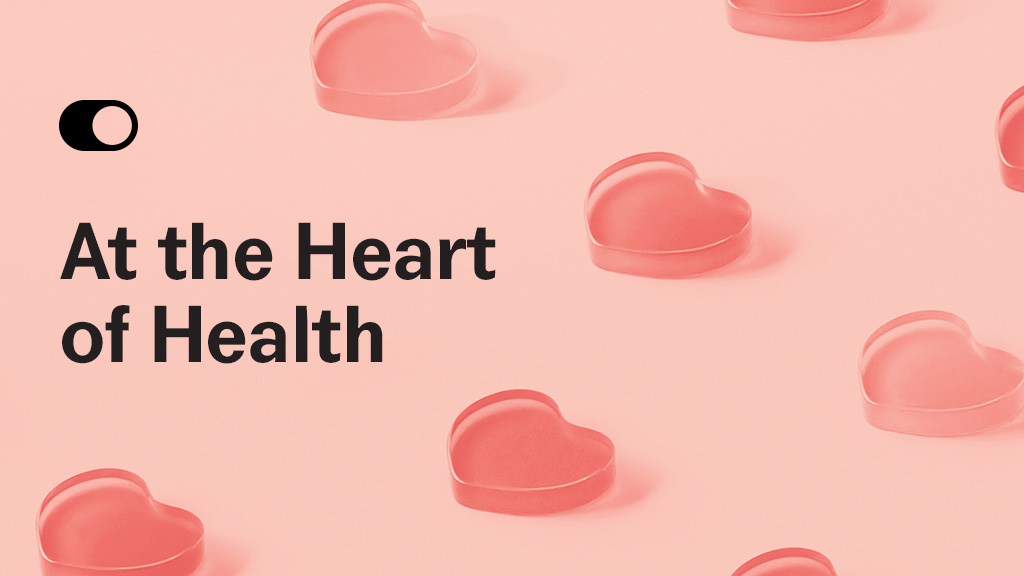
Clinical Corner
At the Heart of Health
Your heart is the hardest working muscle in your body. So it’s really important to keep it healthy. We’ll go over the basics of heart health, what impacts it, and how you can take control of your heart health goals.
What Affects Heart Health?
High blood pressure and high cholesterol are two of the most common conditions that can impact your heart health. But there are lots of lifestyle factors that affect it, too. Things like diet, weight, stress, poor sleep, age, medications, health conditions, and alcohol and tobacco use all have an impact. You’ll also want to be aware of any family history. The good news is many of these factors are in your control! And others can be easily monitored with help from your doctor.
How Do I Know If My Heart Is Healthy?
Regular checkups and check-ins with your Primary Care doctor are your best bet. They can run simple tests to see if your cholesterol and blood pressure are in a healthy range. If they’re not, your doctor can prescribe medications as needed and work with you to come up with a plan to reach your heart health goals.

Understanding Cholesterol Levels
Your body needs cholesterol to make new cells, vitamins, and hormones. But too much can cause buildup in your blood vessels which can lead to clogged arteries and more serious risks.
The amount and type of cholesterol both matter. Low-density lipoprotein (LDL) is considered “bad” because it’s more likely to cause buildup. High-density lipoprotein (HDL) is considered “good” because it absorbs cholesterol and helps flush it out of the body. The right balance of both is key.
A simple lipid panel will look not only at your “total cholesterol” but it will tell you how much LDL and HDL you have and let you know if you’re in a healthy range.

Blood Pressure 101
Another important heart health number is your blood pressure–the amount of pressure your blood puts on your blood vessels as your heart contracts and relaxes. High blood pressure, aka Hypertension, doesn’t always have symptoms and can put you at risk for heart attack, stroke, or kidney disease.
Staying Heart Healthy
Diets high in saturated fats (mostly found in animal fats and palm & coconut oils) and salt and lack of physical activity can contribute to high blood pressure and high cholesterol. So adjusting your diet and exercise habits is the best way to maintain and improve your heart health. You’ll also want to manage stress as best you can and keep alcohol and tobacco use in check.
The Benefits of Exercise
Getting enough exercise benefits your heart in a few ways:
- It helps your body return more bad cholesterol (LDL) from your blood vessels to your liver where it gets flushed out of your body.
- Vigorous exercise can help your body produce more good cholesterol (HDL) which also helps get rid of bad cholesterol.
- Exercise can also lower your blood pressure by strengthening your heart.
You should choose a type of exercise that you enjoy so you’ll stick with it. If you need help with motivation or figuring out a realistic workout plan, our Health Coaches are here to help. The goal for physical activity is at least 150 minutes/week of moderate to vigorous intensity.


Heart Healthy Nutrition Guidelines
What you eat matters to your health. According to the American Heart Association, many different ways of eating can be heart-friendly including the Mediterranean Diet and DASH Diet.
A good place to start is making sure you’re eating:
- Fruits and vegetables
- Whole grains
- Healthy proteins like beans, lentils, nuts, seeds, fish, lean meats, poultry, and nonfat or low-fat dairy
- Non-tropical plant-based oils (avoid coconut and palm)
- Limited sodium, alcohol, and added sugar
If you have questions, connect with your Care Team.
Frequently Asked Questions
How do genetic and family history factors influence individual risk for heart disease?
While lifestyle plays a major role, certain genetic predispositions and familial patterns can also contribute to heart health. Understanding one’s personal and family medical history is crucial for assessing and managing risk.
What are the early warning signs or symptoms of developing heart disease?
Recognizing subtle changes like chest discomfort, shortness of breath, irregular heartbeats, or unexplained fatigue can allow for earlier intervention and prevention of more serious cardiac events.
How do hormonal changes and differences between men and women impact the presentation and treatment of heart disease?
Factors like menopause, pregnancy, and sex-based physiological variations can lead to unique heart health challenges that require gender-specific approaches.
Beyond medication, what surgical or interventional procedures are available to manage advanced cardiovascular conditions?
Procedures like coronary artery bypass grafting, angioplasty, and valve replacements may be recommended in certain cases to restore proper heart function.
What are the links between mental health conditions like stress, anxiety, and depression and an increased risk of heart disease?
Addressing the mind-body connection is crucial, as unmanaged psychological factors can directly impact cardiovascular health through physiological pathways.
What role do socioeconomic and environmental factors play in heart health disparities within certain populations?
Issues like access to affordable healthcare, healthy food options, and safe exercise environments can create significant barriers to equitable cardiovascular outcomes.
